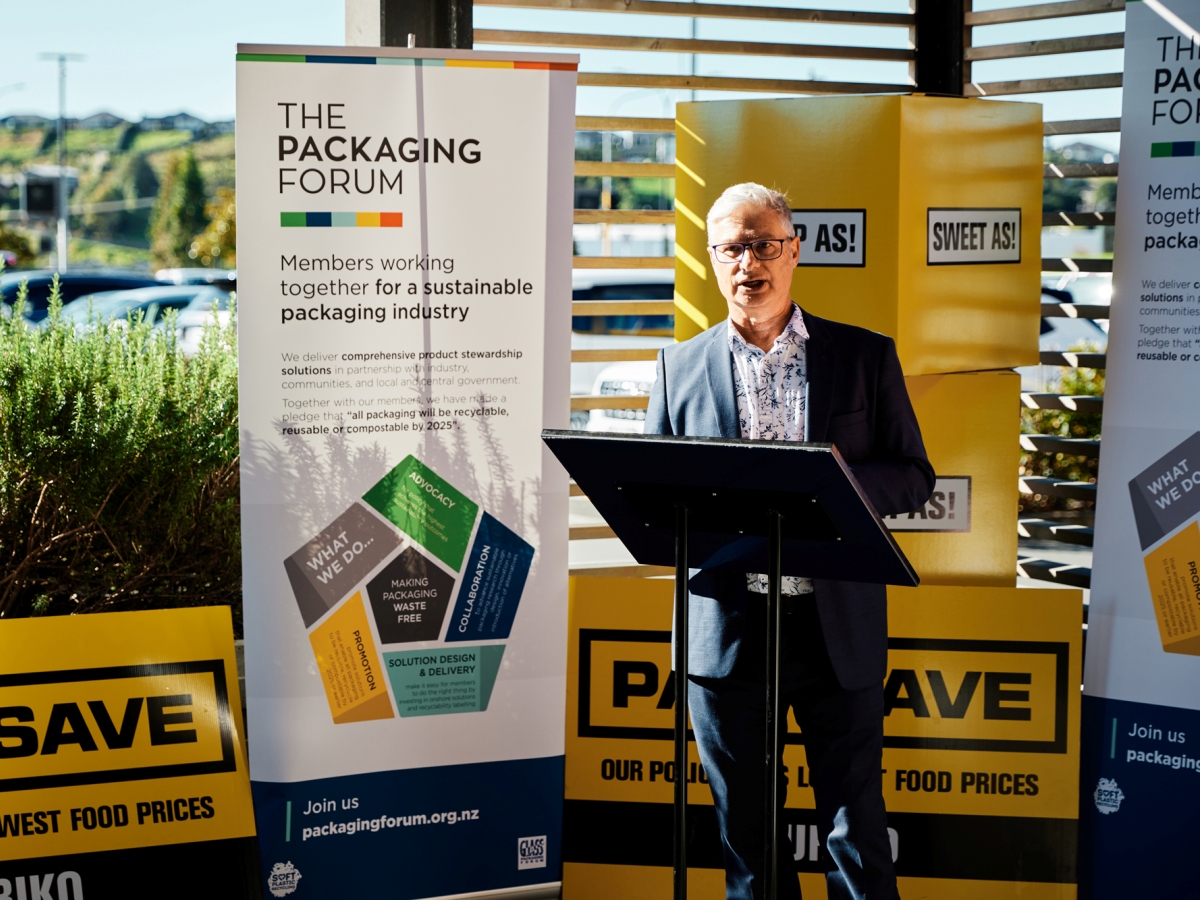Single-use plastic cotton buds, drink stirrers and PVC plastic meat trays are among single use plastics banned from sale or manufacture from 1 October.
“This is the first group of the most problematic plastic products to be banned in a progressive phase out over the next three years,” Environment Minister David Parker said.
“Stopping the sale of these plastic products will reduce waste to landfill, improve our recycling systems and encourage reusable or environmentally responsible alternatives.”
Plastics that are banned from sale from 1 October 2022 are:
- Single-use plastic drink stirrers
- Single-use plastic cotton buds
- Polyvinyl chloride (PVC) pre-formed food trays and containers*
- Polystyrene takeaway packaging for food and beverages
- Expanded polystyrene food and beverage retail packaging (such as foam takeaway containers or some instant noodle cups)
- Plastics with additives that make them fragment into micro-plastics
Meanwhile, the Packaging Forum and the NZ Food & Grocery Council (NZFGC) have welcomed the announcement by the Minister for the Environment, Hon David Parker, that they will jointly lead the project to co-design a Plastic Packaging Product Stewardship Scheme for New Zealand.
The announcement will see The Packaging Forum and NZFGC work with organisations across the plastic packaging supply chain to develop a product stewardship model that best fits the New Zealand priority product criteria and will deliver a best practice scheme.
Both the The Packaging Forum and NZFGC have considerable experience in facilitating industry-led solutions – the Packaging Forum has more than a decade’s experience with the development and management of voluntary product stewardship schemes for glass packaging, soft plastic, and public place recycling/litter. NZFGC is part of a global leadership group on product stewardship, and directly engaged in the Australian Food & Grocery Council’s research to design a soft plastic product stewardship scheme in Australia.
Tony Nowell CNZM has been appointed the project’s Independent Chair and will oversee project management, governance, and delivery of the project. Supporting him will be The Packaging Forum CEO Rob Langford (Project Manager), and Lyn Mayes (Project Coordinator). Both have wide experience of project management, and of setting up and operating product stewardship schemes.
Nowell says the announcement is a pivotal moment that will transform how we use and recover plastic packaging in New Zealand.
“Both the Packaging Forum and NZFGC are well placed to be joint leaders of the project management process. As well as having the relevant industry experience, they have direct access to global partners to help rapidly identify and operate best-practice product stewardship schemes that will allow us to hit the ground running,” he says.
“The project will deliver the research, data collation, analysis and discussion to identify the most fitting product stewardship scheme for New Zealand. Ultimately, the project will look at how plastic is currently collected – or not – and whether there is a more efficient and effective way to do this.
“In addition, part of the project remit is to include recommendations to the Minister on the precise design and organisational structure for a plastic priority product stewardship scheme.”
Langford says this is industry’s opportunity to leave a genuine legacy for future generations.
“As industry, we have a responsibility to deal with the end-of-life recovery for packaging. It is also important that producers are actively engaged and are involved in the leading the project because they are responsible for the choices made around plastic packaging,” he says.
“The Packaging Forum has real experience in delivering successful solutions to waste in New Zealand, having operated several product stewardship schemes over many years, such as the Soft Plastic Recycling Scheme and the Glass Packaging Forum Scheme – both of these schemes demonstrate clearly how industry can voluntarily collaborate and succeed.”
NZFGC Chair Mike Pretty says his organisation recognises the need for industry to show leadership, and to be part of the project; and looks forward to continued work with The Packaging Forum.
“Both organisations bring huge expertise in this area to the table, and we look forward to putting that to good use.
“The time for such a scheme is now.
“NZFGC members have a mantra that if we are part of the problem then we’ll work hard to be part of the solution, and that’s what we are doing.”
Given the project is a co-design process, consumer and community groups, government, producers, and processors will be involved in the decision-making process throughout the project.
Plastic packaging (excl. beverage containers) was declared a priority product under section 9 of the Waste Minimisation Act 2008 in July 2020. This means a product stewardship scheme for plastic packaging must be developed and all producers of plastic packaging must be part of the scheme. At this stage, all plastic packaging[1] used for consumer goods sold via retail or wholesale will be included, as will liquid paperboard and compostable plastic.
The end of the project will see the team recommend a not-for-profit, product stewardship organisation (PSO) structure, which is responsible for the delivery of the plastic packaging priority product scheme, and a scheme design that will be able to meet the requirements of the Waste Minimisation Act, including sections 12,14, and 15.
[1] Excluding plastic drinks containers which are part of a proposed Container Return Scheme



